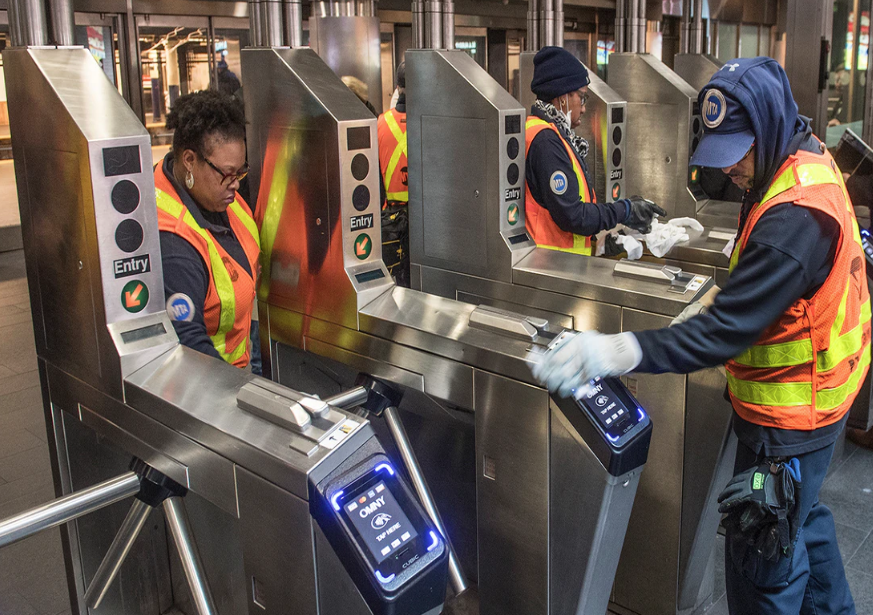The news yesterday was dominated by talk of the subway.
The Times started off by rattling everyone's nerves with the reminder that the subway and bus system's near-complete ridership collapse is an existential event that won't easily be solved.
By the end of the day, the MTA revealed its has lost 79 employees to the COVID-19 virus (NY Post).
The death toll is horrifying on a human level, but it will also present a challenge on a political level, as more and more transit riders are suggesting that they won't return after the coronavirus crisis. New York Times reporter Emma Fitzsimmons revealed on Twitter on Monday that she had bought a car because she feels "uncertainty" about transit. And later in the day, the Department of Transportation's Vision Zero policy director Julia Kite-Laidlaw also tweeted about avoiding the subway because of the germs.
Obviously, everyone has to make his or her own decisions. But the MTA was barely functioning before this crisis — and the ridership collapse could cause a fiscal death spiral. So our elected officials have to face this crisis of confidence head-on — and had better be prepared to rebuild the transit system or we don't really have a functioning city, is all we're saying.
In the rest of the news from a slow day:
- Politico's Dana Rubinstein reported that Gov. Cuomo's pettiness towards Mayor de Blasio is starting to backfire.
- The speeding epidemic claimed another victim in Queens. (NYDN)
- The Department of Education has lost 61 staffers to coronavirus (NY Post).
- The Department of Transportation said it had lost its third and fourth workers, Staten Island Ferry deckhand Saquan Bush and Paul McElearney of the Harper Street asphalt plant.
Just a sad day all around.
Here are some national headlines, from Streetsblog USA, to tide you over:
- People who are afraid of riding transit during the coronavirus pandemic are turning to bikes instead. Bike commuting is up from less than 1 percent to 5 percent, and some bike shops are running out of stock (Reuters). It’s booming in cities like Philadelphia and New York, even as others, like Cincinnati and Washington, D.C., close off spaces to cyclists (American Prospect). Another example: Houston’s BCycle bike-share set a record with 26,000 trips in March (KHOU)
- America’s streets were designed for reckless driving, and it’s become even more obvious now that there’s no traffic to slow people down. (Strong Towns)
- Oakland’s “slow streets” are working, with no collisions or large gatherings reported in the week since the city restricted traffic on the first of what is expected to be 74 miles of streets. (City Lab)
- The U.K. is letting local governments fast-track road closures during the coronavirus crisis so walkers and bikers can practice social distancing. (Forbes)






